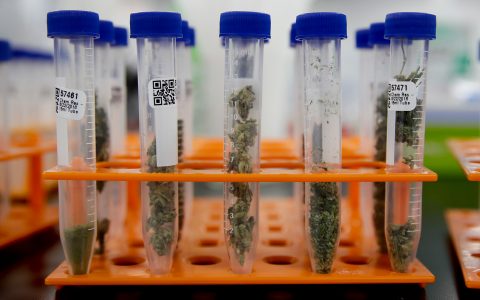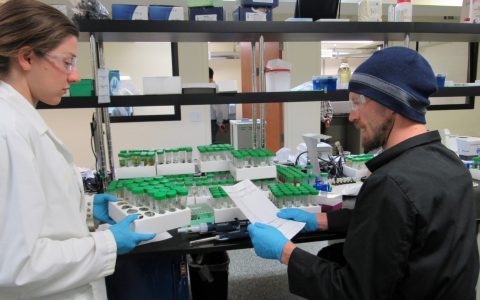As the California cannabis industry prepared for a rigorous, state-mandated testing regime that took effect on July 1, the laboratory director at Sequoia Analytical Labs in Sacramento allegedly went rogue.
According to officials with Sequoia and California’s Bureau of Cannabis Control (BCC), Sequoia’s lab director—unbeknownst to anyone else at the company—began falsifying reports for hundreds of batches of cannabis that went out to retailers. He said the batches passed tests for 22 pesticides, even though the tests allegedly were not done.
Jeffrey Raber, CEO, The Werc Shop
The fraud continued and wasn’t detected until Nov. 27, when the Bureau of Cannabis Control, made suspicious by the odd format of submitted test reports, mounted a surprise inspection of Sequoia. The lab director, Marc Foster, immediately owned up: “He flat-out told them, ‘I faked it,’” according to Steven Dutra, Sequoia’s general manager.
Dutra fired Foster the next day. Dutra said he has no idea why Foster faked the reports. The testing equipment wasn’t working, and Foster told the company, “I just kept thinking I was going to figure it out the next day,” according to Dutra.
Foster did not respond to Leafly’s attempts to reach him for comment, nor has he made any public statements about it on his social media accounts. An official at the BCC declined to elaborate on the situation: “The Bureau has no further comment on Sequoia at this time.”
The company, on its own volition, immediately surrendered its state cannabis testing license. The BCC has put the lab out of commission for at least the remainder of 2018. According to Dutra, a decision from the BCC is expected soon on the lab’s annual 2019 license, and the company feels it’s likely to be approved despite this major incident.
Millions of Dollars of Cannabis Affected
But even if that happens, Sequoia will likely take a hit. The fraud affected about 700 batches of cannabis—potentially worth millions of dollars. The BCC seized about half of those from the lab. The rest had already gone out to retailers, and much of it probably has already been sold to end consumers. No recall has been imposed, and it’s not even certain one would do much good at this point, since, once it’s tested, cannabis moves through the system fairly quickly. The BCC declined to comment. A call to a number listed for Foster was not returned.
That the lab results were faked doesn’t mean that the affected flower and concentrates exceeded the allowed amounts of pesticides—in fact, they almost certainly didn’t, since only about three percent of tested product exceeds those limits. But the fraud will not help Sequoia’s reputation—which until now has been unblemished.
Reactions have varied among the “30 or 40” affected cannabis distribution companies that rely on lab tests from Sequoia, Dutra said. “They ranged from supportive to speechless—name the emotion, and we’ve heard it,” he said. ‘I’m sure there will be fallout.”
Looking For Legal Cannabis? Leafly Has All Your Local Menus
Will the Lab Regain Its License?
Sequoia has two major things going for it: its longstanding reputation for quality and honesty, and the way it’s handled the crisis so far.
The company served the medical cannabis market for seven years before adult use was legalized. “They have a great reputation,” said Jeffrey Raber, CEO of The Werc Shop, which once performed tests for medical cannabis companies but now functions largely as a consultant to the testing industry.
Dutra said the BCC gave the company the option of notifying its suppliers, and it did so immediately. It also posted a notice on its Instagram page—a highly visible cannabis marketing channel. “We want to be as transparent about this as possible,” Dutra said.
In the meantime, the company is trying to determine what went wrong with its testing equipment. A software glitch might be the culprit, but the whole system is being examined—including the equipment that tests for mold and residual butane, as well as for THC levels. No problems have been reported involving that equipment.
New Lab Director Takes Over
Sequoia was lucky in a way. The company had just hired a new assistant lab director with stellar credentials. She was ready to take over Foster’s job immediately, and is heading up the investigation into the problem.
While the fraud itself is solely Foster’s responsibility, the company does acknowledge that it could have done better. The main organizational problem was that Foster was the only chemist in the lab who worked with the pesticide-testing equipment, and the only one who prepared reports. “Nobody was checking his work,” Dutra said, acknowledging that this was a major systemic flaw—like having the chief accountant be the only person in charge of disbursements. “We were penny wise and pound foolish,” he said.
Raber made the same point. “You always have to ask yourself, ‘who’s watching the watchers?’” he said.




